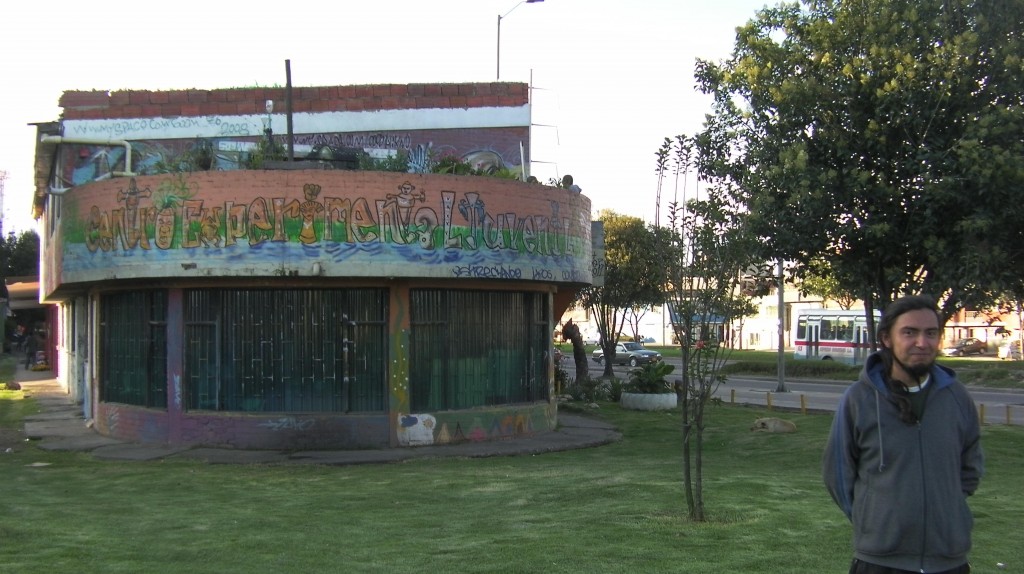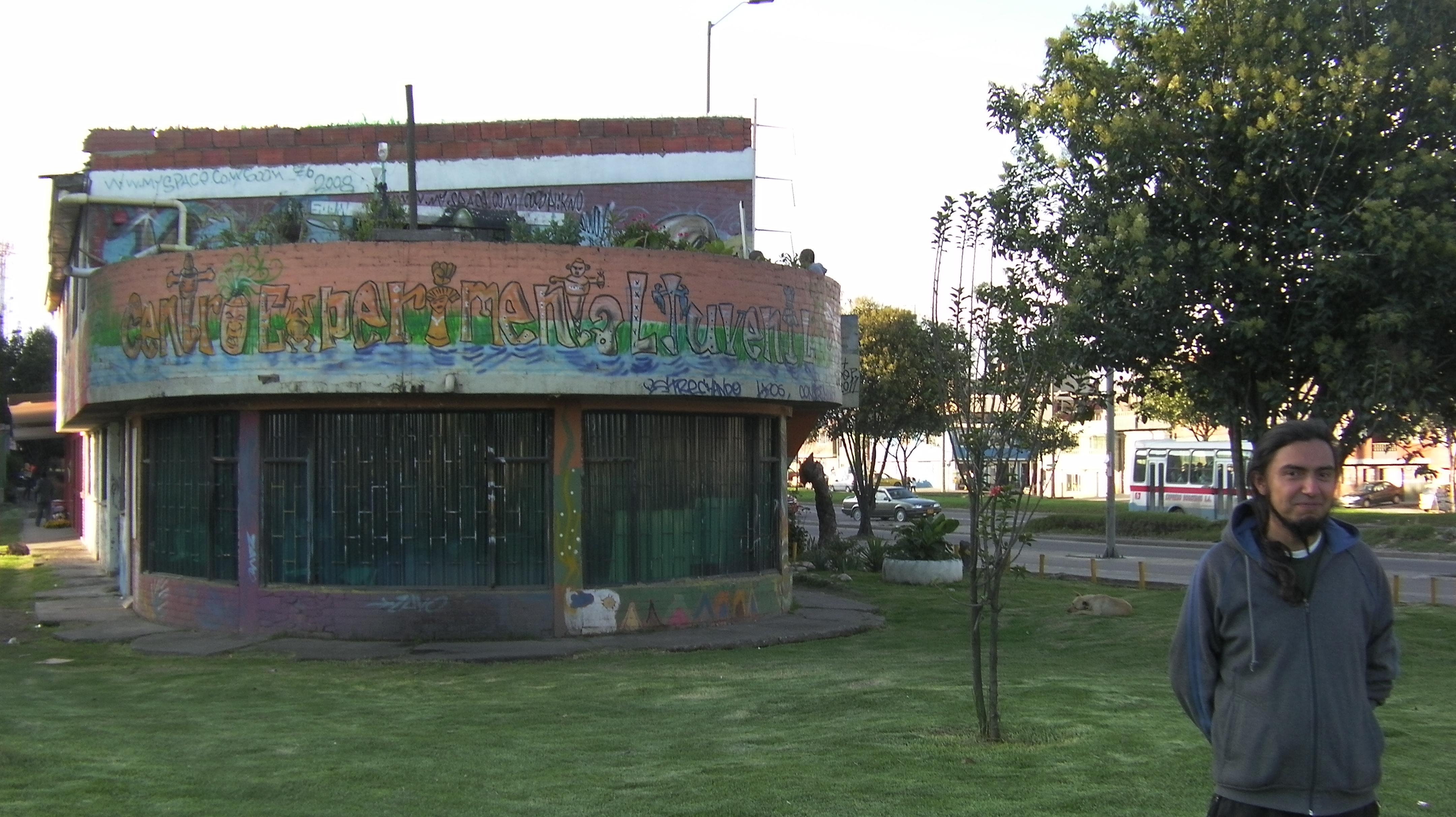
Young people in Tunjuelito, southern Bogotá are participating in free classes to help them get into university, part of a movement to improve political awareness in poorer barrios.
Across Bogotá there are now at least six free pre-universitarios that work according to the principles of popular education. They aim to help students who can’t afford classes to get through public university exams and they try to respond to the surroundings in which young people find themselves.
I spoke to Manuel, a founder member of the pre-universitario in Tunjuelito housed in the Centro Experimental Juvenil Tunjuelito.
“This is the south of Bogotá where people are mostly workers, they’ve had less opportunities socially speaking. A lot of the sector was built originally by squatters taking over land to build illegally,” he told me.
The founders of the school also originally squatted the colourfully painted building in which it is held, although they now have permission to be there. The teachers work for free and all classes are free, but popular education goes beyond that.
“The majority of the workshops we try to increase formal knowledge of the territory where you are. We talk about how we can put it in practice and critique the reality that we live.”
Christian, one of the students I spoke to, confirms that the classes here are not like at school. “We learn in a dynamic, different way, that makes sure you learn. The teachers are more like your compatriots and you learn together.”
This school has already had some students graduate to go to university and others are in the process of doing so. The organisers are on the lookout for more building space as it is hard to accommodate everyone who wants to come – they sometimes have 80 students on a Saturday morning and at the beginning of the year after a successful publicity campaign over 200 young people turned up to investigate classes.
Jonathan, another Tallerista or teacher, lives nearby in south Bogotá. “It’s difficult to get into university here because the people from the higher clases have a big advantage,” he says. The Tunjuelito area is mixed, he explains. While some neighbourhoods are relatively safe, others are problematic. “The culture of the street in south Bogotá is very macho, in which men must defend their honour. […] The area just to the south of where we are sitting can be dangerous. My mother doesn’t like me to go out and have a beer because people get killed.”
Jonathan also believes strongly in the principles of popular education. “I love this organization, because it changes the relationship between students and teachers, everyone teaches and learns.
“While normal education places emphasis on productive subjects, in popular education we can place emphasis on other types of knowledge, on street art and other types of knowledge.
But there are still plenty of reasons to get the young people into academia, he says. “Many of the local people get an education at technical college that isn’t necessarily high quality – they are taught how to turn on a machine. The education is a trap because it doesn’t allow you to progress any further.”
So the pre-universitario teaches the maths, science, social science and other topics young people need to get into university. But it also has classes on sustainability. Manuel wants to put even more emphasis on self-management and intermediate technologies in the future.
“Popular Education is about dealing with the reality we live and the idea of collective transformation,” he says.
Manuel taught in another pre-universitario before this and the Tunjuelito school is part of a network of similar initiatives in Bogotá linked by the organisation Coordinadora de Procesos de Educacion Popular En Lucha.
“The idea is that popular education shouldn’t be something transient but a real alternative. So in the medium to long term we want to develop popular schools as well as other pre-universitarios. This is the big intention of the Coordinadora. We are also campaigning on the cost of higher education, for instance the cost of exams. ”
Jonathan also sees popular education as something that can only expand. “This is my hope for education, that it changes the whole world. It has already started in other countries in Latin America. This type of education is like a hope, it is a response to the system, and the best thing is that it is a non-violent one.”
